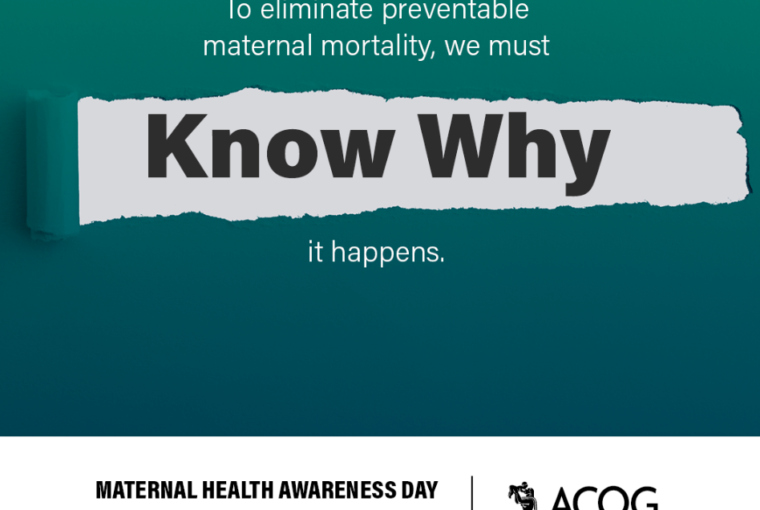Pregnancy is a beautiful and transformative journey in a woman’s life, but it also comes with potential health risks. One of the most concerning complications is preeclampsia, a condition characterized by high blood pressure and organ damage that can endanger the lives of both the mother and the baby1. Preeclampsia has increased by 25% in the last 25 years, and it is now the leading cause of maternal mortality and disability worldwide2. Preeclampsia affects 2-8% of pregnancies globally and is a primary cause of maternal and newborn mortality. Blood pressure and urine protein tests are used to diagnose preeclampsia, although they might be inaccurate and late. Delaying diagnosis might limit therapy options and affect disease management3. Also, preeclampsia affects Black pregnant women five times more than white mothers4.
However, a breakthrough in medical technology has recently emerged, offering hope and relief to expectant mothers. The development of a newly approved blood test holds the promise of predicting severe preeclampsia diagnoses earlier and more accurately, ultimately improving maternal and fetal outcomes. This first-of-its-kind prognostic test detects sFlt1 and PIGF, two blood proteins that predict poor preeclampsia outcomes better than current approaches. The test can predict severe preeclampsia in pregnant women with hypertension between 23 and 35 weeks1. This blood test was developed by Thermo Fisher Scientific and granted approval by the FDA.

If left untreated, preeclampsia can lead to life-threatening complications for both the mother and the baby. Here are some of the effects associated with preeclampsia5:
- Maternal Effects:
- High blood pressure: Preeclampsia raises pregnant women’s blood pressure. Stroke, eclampsia, and organ damage can result from failing to manage it.
- Organ damage: Preeclampsia damages the liver, kidneys, and brain. It can damage the liver, kidneys, and nervous system.
- HELLP (Hemolysis, Elevated Liver enzymes, and Low Platelets) syndrome: In severe preeclampsia, hemolysis (red blood cell breakdown), increased liver enzymes, and low platelet count might occur. HELLP syndrome causes liver failure, hemorrhage, and other issues.
- Hypertension, heart disease, and stroke are more likely among preeclampsia survivors.
- Developing cardiovascular conditions later in life, such as hypertension, heart disease, and stroke.
- Fetal and Neonatal Effects:
- Restricted fetal growth: Preeclampsia can impede placental blood flow, resulting in intrauterine growth restriction. Low birth weight and health concerns may follow.
- Preterm birth: Preeclampsia raises the risk of premature birth, which can cause respiratory distress syndrome, feeding issues, and developmental deficits in the newborn.
- Preeclampsia may cause early placental abruption. Bleeding from placental abruption can threaten the baby’s oxygen and nutrition supply.
- Preeclampsia can cause stillbirth.
- Long-term Effects:
- Preeclampsia increases the risk of chronic hypertension in women.
- Cardiovascular disease: Preeclampsia has been associated with an increased risk of cardiovascular diseases such as heart disease, stroke, and heart failure in the long term.
- Kidney disease: Preeclampsia can damage kidney function and raise the risk of chronic kidney disease.
- Metabolic disorders: Women with a history of preeclampsia may be at risk for metabolic disorders such as type 2 diabetes and metabolic syndrome.

Benefits of Early Detection:
Early detection of preeclampsia is crucial for effective management and improved outcomes. The new FDA-approved blood test offers several significant benefits:
- Enhanced Pregnancy Care: Early identification of high-risk pregnancies allows doctors to customize care. It allows closer monitoring, more frequent check-ups, and effective treatment.
- Improved Maternal and Fetal Outcomes: Early detection and treatments reduce preeclampsia risks. It can lower blood pressure, avoid problems, and minimize the risk of preterm birth, low birth weight, and stillbirth.
- Reduced Healthcare Costs: Preeclampsia requires extensive hospital stays, intense treatment, and long-term problems, which strain healthcare systems. The new blood test may minimize preeclampsia costs by identifying and addressing high-risk pregnancies earlier.
The approval of a novel blood test to predict and diagnose severe preeclampsia early is an important milestone in women’s health. This groundbreaking method will help healthcare providers identify high-risk pregnancies earlier and more accurately. It provides timely intervention, personalized care, and better maternal and fetal outcomes. Pregnant women can now receive needed prenatal information and actively engage in their healthcare decisions. As research progresses, we will continue to learn more about preeclampsia and develop more targeted and tailored treatments. This new blood test improves the health of mothers and their unborn children and promises to improve prenatal care. By leveraging the power of biomarker analysis, this test empowers expectant mothers.
Image Source: Crystal Run Healthcare
REFERENCES
- Richards, S. (2023, June 12). Newly approved blood test can help predict severe preeclampsia diagnoses earlier and more accurately. UChicago Medicine. https://www.uchicagomedicine.org/forefront/womens-health-articles/newly-approved-blood-test-can-help-predict-severe-preeclampsia-diagnoses-earlier-and-more-accurately
- Krewson, C. (2023, July 5). Blood test for preeclampsia granted FDA approval. Contemporary OB/GYN. https://www.contemporaryobgyn.net/view/blood-test-for-preeclampsia-granted-fda-approval
- Craig, M. (2023, June 12). First-of-its-kind prognostic blood test can better predict preeclampsia risk. News. https://www.news-medical.net/news/20230612/First-of-its-kind-prognostic-blood-test-can-better-predict-preeclampsia-risk.aspx
- Torrence, R. (2023, July 4). The first test for predicting preeclampsia in pregnant people won FDA approval more than 100 years after researchers discovered the blood-pressure disease. Insider. https://www.insider.com/first-test-for-preeclampsia-risk-gets-fda-approval-2023-7
- S. Department of Health and Human Services. (n.d.). What are the risks of preeclampsia & eclampsia to the fetus?. Eunice Kennedy Shriver National Institute of Child Health and Human Development. https://www.nichd.nih.gov/health/topics/preeclampsia/conditioninfo/risk-fetus#:~:text=Infants%20born%20preterm%20due%20to,epilepsy%2C%20deafness%2C%20and%20blindness.
- The first test for predicting preeclampsia in pregnant people won FDA approval more than 100 years after researchers discovered the blood-pressure disease. Insider. July 4, 2023. Accessed July 5, 2023. https://www.insider.com/first-test-for-preeclampsia-risk-gets-fda-approval-2023-7



